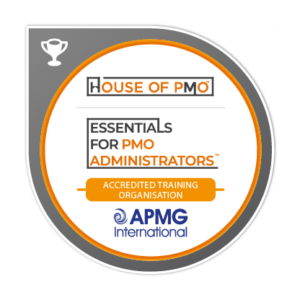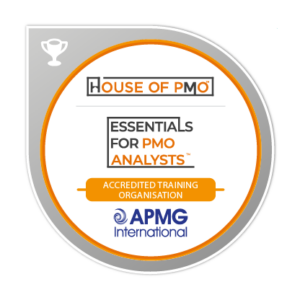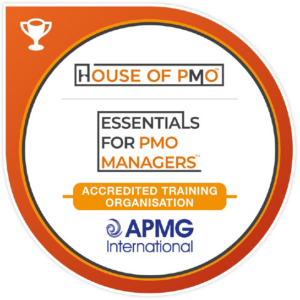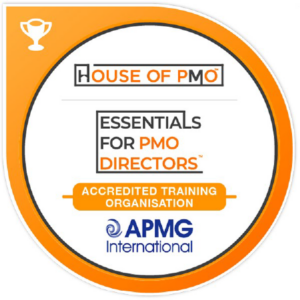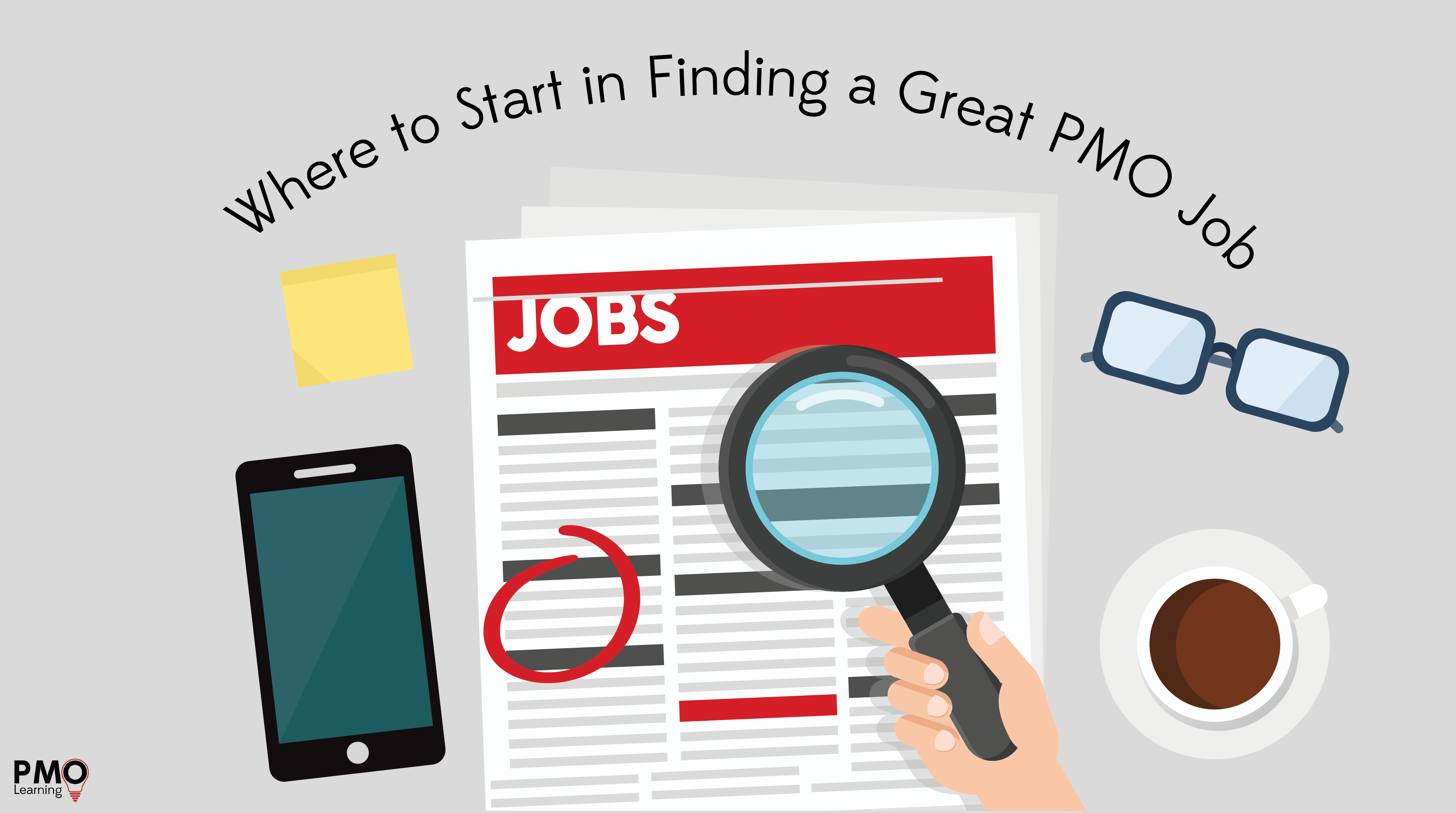
You’re looking for a new job in PMO, you don’t just want any job, you want a great job.
One with great remuneration, bonus, benefits. One which will fulfil you, give you challenges and lead to a sense of achievement and fulfilment.
So where do you start when you’re setting out to find it?
In this article we start by taking a look at the most important component when it comes to finding a new PMO job. The part which will attract different opportunities; open the doors to interviews; and ultimately be successful in finding that great job.
It’s all about focusing on you first of all.
What Have You Got?
I get a lot of questions from PMO practitioners who find job hunting a struggle – often they can’t work out why there are no positive responses to applications they make or why interviews are not ending in success and a job or contract offer.
The answer is never straightforward (what is!) yet there are practical things you can do to maximise your chances, it just requires a little bit of introspection and knowing how organisations think about and approach the recruitment of PMO practitioners.
So let’s start with what you’ve got.
What is it You’re Selling?
Recruitment is a transactional service – you have something to sell, an organisation is in the market to buy.
So what is it you are selling? There’s quite a list:
Each one of these things are attractive to hirers and it’s these things that are picked up during CV screening and probed at interviews.
Furthermore, with each one of these things, there is an additional angle to consider – the context in which you’ve gained them. So for example, the PMO context. The skills and experience gained in a Programme Office will be very different to those gained in a Portfolio Office. Likewise, skills and experience gained as a PMO Manager are very different to those of a PMO Analyst.
A common problem I see with PMO practitioner CVs is what you’re selling is not very clear.
That means the skills might not be obvious; or the experience is not articulated well enough.
The other problem I often see is that the context is not clear either. For example, you may be a PMO Manager but it’s difficult to see what kind of PMO you are managing. Or, you’re the manager but the skills and experience you’re highlighting in your CV doesn’t seem to be at the right kind of level.
Let’s take a look at each one of the areas listed above that you’re selling and go a little further into how these are used and seen in the recruitment process.
PMO Skills
It’s obvious that people hire people who are skilled in the job on offer.
With PMO, skills are those things you’re using on a regular basis, so taking a typical PMO Analyst type role that would include things like:
- Reporting and analysis
- Stakeholder management
- Planning
- Facilitation
- Document writing
A good way to understand what your core skills are and the level of proficiency you are is to think about all the tasks and activities you perform – then think about what skills it takes to perform those activities. A simple pen and paper exercise can lead to you realising that actually there are A LOT of skills that go into you performing your role.
PMO Experience
So the experience part is the combination of all those tasks and activities you perform AND the skills needed to carry them out successfully.
Organisations are often obsessed with where the experience is gained – the type of industry sector; the company you’ve worked in; the types of programmes and projects delivered.
One thing they don’t seem as enthused for is the type of PMO – yet they are interested in the experience gained through different tasks and activities that are aligned to traditional PMO functions and services.
What do I mean by that? Organisations seem to struggle to articulate what the PMO they are recruiting into really does. How many times have you seen a job advertisement that says the PMO is a programme office yet the description of the roles and responsibilities seems to reflect more project or portfolio than programme?
Organisations in their recruitment of PMO practitioners tend to focus more on the functions and services of the PMO they have, and therefore want to see this in your CV.
A good source for understanding the functions and services of a PMO is the P3O® certifications, and more specifically an Appendix F manual. Take a look at P3O® Appendix F
PMO Knowledge
Keeping on the subject of something like P3O®, your knowledge is also up for sale. Your skills an experience are based on the knowledge you have. And what’s more important is making sure that knowledge is up-to-date.
It’s also important that your knowledge is not just company-specific – that you ensure that you’re aware of PMO practices outside in the wider world.
A classic problem in recruitment around PMO practitioners is when specific terms are used in interviews – take the ‘hub and spoke’ model of PMOs. When you’re not aware, it can make you look uninformed, dispassionate, out-of-date etc. None of that is good in a recruitment process.
So PMO knowledge is about being able to show what you’ve got; how you utilise that in your work and how you seek out new knowledge. At the end of the day, the PMO role is about evolving and improving all the time – so where do you gain new ideas or inspiration from?
PMO Training
Well, training is just one of the routes to keeping up to date but it’s more than that.
Taking training also shows you’re committed to what you’re doing; that learning is important for your own development. PMO practitioners can’t hope to help their organisations get better and more successful at programme and project delivery if they themselves aren’t interested in getting better and more successful as individuals themselves.
Self-development is something all of us should be doing – we never stop learning and in the PMO end of project management, there is continuous change in how PMOs operate.
In a recruitment process, it’s always good for the self-confidence to know that you’re well informed before entering the interview.
PMO Qualifications
Recognised training is also good for the CV. Let’s face it, it helps an organisation whittle down applications into a shortlist. Who would you choose, someone with a PMO certification or not?
There’s a lot to choose from:
- There’s the PMO related qualifications – like P3O® or PMO Essentials.
- There are the project management ones – like PRINCE2®, AgilePM.
- Then there’s the programme management ones – like Managing Successful Programmes (MSP®)
- Then portfolio management – the Management of Portfolios (MoP®) or Unlocking Business Agility Through Portfolio Management
- Then there are more specialised areas – like Business Analysis; Data Analysis; ITIL; Six Sigma and so on.
- There’s computer-based stuff too – spreadsheets, Gantt charts and so on.
That’s a lot right? And that’s not even considering all those avenues of training that don’t produce a certification at the end of it.
PMO Toolset
Each PMO practitioner has their own ‘bag of knowledge’ when it comes to performing their job.
That’s the different approaches you take to getting work done; the different templates and forms you’ve amassed over the years; the actual tools of the trade (the different software, PPM tools, miscellaneous spreadsheets) and the different techniques.
This is your knowledge collected from over the years in a physical form; the things you pull out of your toolset as and when you need it. Need to run a retrospective? I have a few exercises I’ve used previously that have worked well. . . .
When organisations are recruiting for PMO practitioners, the ones with a toolset are the most attractive candidates.
PMO Behaviours
Behaviours are all about what we can see when we watch you performing the role.
How do you deal with people? How you approach a problem? How you facilitate a session? How you change a process? You name it, we’ll be looking at what your behaviours are and how well they fit into the organisation you’re currently applying and interviewing for.
Will we see PMO practitioners who can patiently explain a process to a new starter? Will we see someone who is open and engaging when chatting to colleagues? Will we see a manager who displays empathy and understanding with an upset team member?
How we choose to carry out our roles has an enormous impact on the recruitment process. You can be 100% right for the job but if you’re not a match culturally for that organisation – you’ll be doing yourself a huge favour by not pursuing that opportunity.
And finally:
PMO Mindset
Positive or negative? Growth or fixed? Proactive or reactive? Introvert or extrovert? Eeyore or Tigger?
We hear all the time about mindset, “the established set of attitudes held by someone”, and mindset has a big impact on our motivation and achievements.
Mindset comes into play more in interview situations – how we respond to those scenario questions about how to deal with challenges and adversity.
Within PMO we know that we work with many different stakeholders at all levels of the organisation – and often the PMO is working against different – not all positive – attitudes about its existence. How we choose to deal with that comes down to our mindset.
We are often instigators of change (around different processes for example) and also affected by change. Our attitude and mindset has a huge impact on how we choose to deal with different situations. There isn’t one ‘type’ of mindset that is necessarily better than another. It all comes down to the context in which you’re operating. A highly regulated industry needs string governance and control – a fast-moving tech company needs ‘just enough’.
When we bring all these different elements of ourselves together that we are ‘selling’ in the recruitment process – it’s the sum of the total package that new hirers are buying.
The question for you is, “to gain a really great PMO job, do I really understand what I’m offering to a new organisation – what are the different parts that when combined together, make me great and the right person for the job?”
The P3O® and MoP® courses on this page are offered by PMO Learning. P3O® and MoP® are [registered] trade marks of AXELOS Limited. P3O® and MoP® are registered trade marks of AXELOS Limited, used under permission of AXELOS Limited. All rights reserved.
Enjoying Our Blog?
Sign up and receive all our articles (we’ll send you an update once a week!) plus special offers and events:






